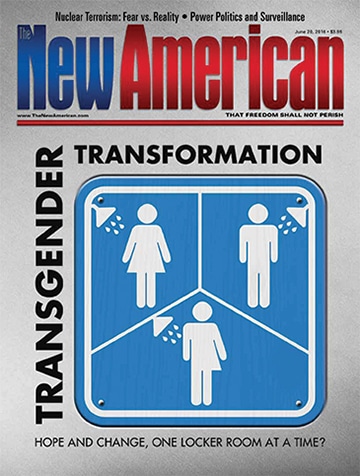American Principles
“Government,” Thomas Paine wrote in Common Sense, “even in its best state, is but a necessary evil; in its worst state, an intolerable one.” Such sentiments were widely shared among the more radical and idealistic members of the Founding generation, such as Paine, and have since been advocated by the likes of early libertarian theorists Lysander Spooner and Albert Jay Nock, many modern libertarians and anarcho-capitalists, and some left-wing strands of anarchism.
There are probably few contemplative souls who, at one time or another, have not wondered — given the long and mostly destructive history of government — whether humanity would not be better off with no government at all. After all, every experiment in limiting the power of government has failed in the long run. Even American limited constitutional government is very much in jeopardy of following ancient Rome into autocratic ruin. Many of the constitutionally mandated limits and checks on our federal government’s power have been set aside, and even state and local governments have been on an unprecedented growth spurt over the last few decades.
Not only that, even in its pristine form, the American body politic suffered from some significant flaws, most prominently the institution of slavery. In the course of eliminating chattel slavery, the United States fought a horrendously destructive, fratricidal war — and ushered in a new era of centralized executive power in Washington.
Given the track record of even the best forms of government, can any type or degree of government be a good thing? The Founders who framed the Constitution certainly thought so, and the language of the Constitution’s preamble implies that, properly conceived and maintained, government can indeed be good — it can “form a more perfect union, establish justice, insure domestic tranquility, provide for the common defence, promote the general welfare, and secure the blessings of liberty to ourselves and our posterity,” all outcomes that any reasonable person would want for himself, his contemporaries, and his descendants.
All of these objectives, save one, our American government has in common with every other government ever framed. Does not even the basest tyrant desire unity (under his rule, naturally), justice (as defined according to his own whims), domestic tranquility (enforced by his merciless legions), and so forth? These are the stated aims and justification for every government. Only one of the Preamble’s objectives is unique: Ours was the first national government whose founding document included as one of its aims the defense and preservation of human liberty. That the Preamble lists this purpose last is not accidental; it is the key to the successful execution of all the others.
“Securing the blessings of liberty” is another way of expressing the proper role of government, which is to protect the God-given, natural rights of every person. If government frames a law, it should be a law whose aim is to protect its citizens in their right to own property, to worship as they see fit, to defend themselves, to express their opinions freely, or any of a myriad of other unalienable rights. And if a magistracy takes punitive action against criminal behavior, it should only be for bona fide crimes against person or property.
Of course, the boundary between what constitutes purely personal choice and choice with external moral consequences is not always clear-cut, as with the man who makes a personal decision to consume alcohol excessively and ends up committing destructive acts against his family and community as a result. Because of this, men of good will disagree as to the appropriate degree of legal restraint of activities such as alcohol consumption. But in theory, at least, government can be obliged to be the servant of humanity rather than its master, if the goal of preserving liberty is always held paramount.
In practice, unfortunately, this goal is often elusive. Those who serve in government never tire of looking for ways around statutory limits on their power. With the most ingenious blandishments, they persuade their constituents that every new program will confer some sort of protection or security, and that the sacrifice of a little liberty in exchange for such is the mark of a modern, “progressive” society. For most of the last century, America has seen a steady onslaught of new government programs, from Roosevelt’s New Deal to ObamaCare, that massively expanded government power in order to provide more security. The fact that these programs have also stripped Americans of a large part of their property and their right to choose freely how to work, what to do with their hard-earned money, what medical care to purchase, and so forth, is ignored by partisans of the “Nanny State.”
The real issue, then, is not whether it is possible to create good government — that has already been done, as witness not only the framing of the Constitution but also the framing of the 13 state constitutions that served as models for it. Other countries, too, managed to create good government for a time, including the Republic of Venice and Switzerland. The issue is whether good government, once created according to correct principles, can be kept from degenerating into bad government. The best governments ever framed prior to our own — the Roman and Venetian republics — both transformed eventually into miserable despotisms, and there are many warning signs that the American republic is on the same path.
The only possible solution is a return to the civic virtues that allowed “government by the people” to flourish in the first place. Limited government can only flourish where there is unlimited willingness to work, to exercise thrift, to take risk, to control one’s base and selfish impulses, and so forth. The key to the maintenance of good government is the maintenance of moral virtue.
Good government, therefore, is not a “necessary evil,” it is a “necessary compact” allowing men to live in liberty while enjoying the blessings of peaceful association.


